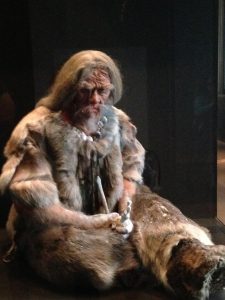‘Old & Wise’ OR ‘Old Fool’—that is the question. Age, or to be precise experience, changes an individual’s perspective and a character’s role in a work of fiction. The sage grandpa, the batty old lady next door, the wise matriarch, the silly old fool, the elderly voice of experience…. There are lots of clichéd characters that put older people into two extreme camps. On one hand they are losing it (perhaps through dementia) and on the other hand they are the voice of reasoned, experience in the midst of anxious, reactive younger characters unable to see the forest for the trees.
My friends vary in age—both older and younger than me. My late mother said it was very important to have YOUNG friends. I’m starting to understand that now that she is gone. Her younger friends—most a bit older than me, but some younger—have been very helpful. While her contemporaries are less available to help. Those that did not predecease my 89-year-old mom are focused on their own age-related quandaries.
Some of the greatest characters in literature were elderly. The wizard Merlin appears in many guises but is usually depicted as wise and noble, but still unable to guide his king to avoid jealousy and loss. Nobody beats King Lear for selfish, foolhardy, self-destructive choices. Whatever wisdom the old king accumulated over his lifetime, his judgment about his family was not sound.
Lately, I’ve been noticing how older characters respond to their “invisibility.” Some embrace it—discovering how much they can learn & do under the radar. While others rail against the way younger people ignore them or take them for granted. Miss Marple is the classic example of a character embracing her invisibility. She knits, sips tea, chats, and —most of all LISTENS. Going unnoticed, she in turn notices much more than a more active character.
Do you have any thoughts to share on the old wise/old bitty dichotomy in storytelling?






Not sure about the aged in fiction, but I have to agree with your Mother – having young friends stops the brain from ossifying. 🙂
I love that word—ossifying!
-grin- It is nice, isn’t it? I suspect my brain was, in fact, going rock hard yesterday. It’s been an exhausting week and I didn’t realise how tired I was until I woke today [Saturday here] after 10 hours of sleep.
So, King Lear. I’ve always been incredibly angry at Lear. Not because he was old and lost his marbles, but because he was such a self centred, egotistical idiot. -sigh- You see? I’m still angry at him.
I don’t think age automatically confers wisdom, just as it doesn’t automatically turn men and women into nice, grandmotherly/grandfatherly people. The one thing that age does confer, is experience and the opportunity to learn from all that experience. But like the old saying – ‘you can lead a horse to water, but you can’t make it drink’ – age cannot make any of us /learn/ if we don’t want to. 🙁
Lear is infuriating! I’ve seen several really good productions (Derek Jacobi for one)and the better the Lear the more angry I become. He learns nothing and suffers most because of his egotistical POV.
It’s interesting to me that older characters in fiction tend to be on one extreme or the other. They are rarely nuanced, middle of the spectrum personalities. Most often they are OLD FOOLS or WISE SAGES.In reality, most people are neither and/or a little bit of both. Age does give us experience and yes… it’s what we do with that experience that makes a difference!